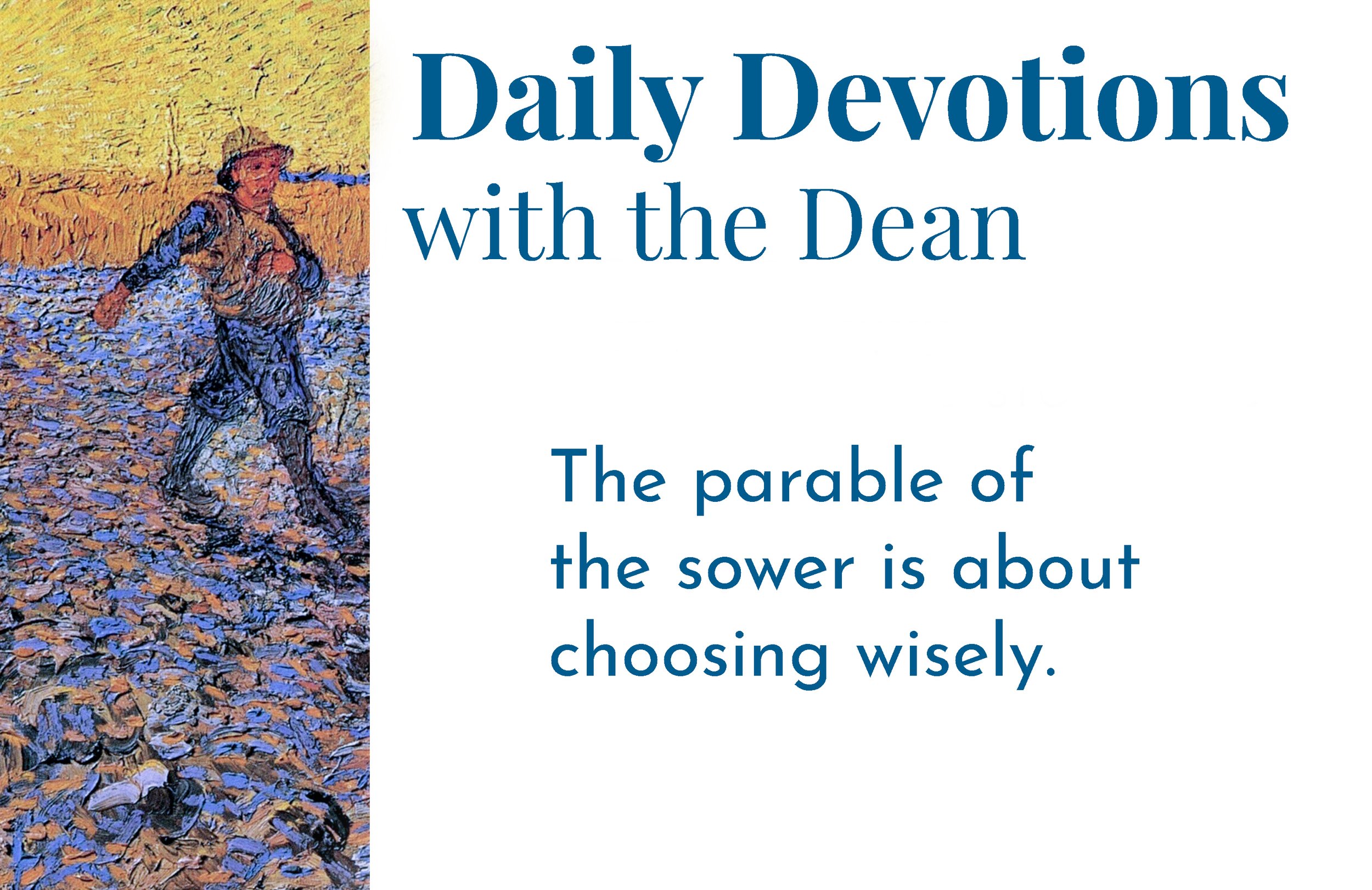Tuesday • 10/15/2024 •
Proper 23
This morning’s Scriptures are: Psalm 5; Psalm 6; Jonah 1;1-17; Acts 26:24-27:8; Luke 8:40-56
This morning’s Canticles are: following the OT reading, Canticle 13 (“A Song of Praise,” BCP, p. 90); following the Epistle reading, Canticle 18 (“A Song to the Lamb,” Revelation 4:11; 5:9-10, 13, BCP, p. 93)
We take a three-day journey now with the prophet Jonah. It so happens that this reading overlaps with the reading of those chapters in Acts that recount the apostle Paul’s voyage to Rome. Reading the prophet Jonah’s oceanic misadventures side by side with the apostle Paul’s oceanic adventures makes for intriguing comparisons. Two servants of the Word of God make westward sea journeys: Jonah towards Tarshish (believed to be near modern day Spain), and Paul towards Rome. One flees God’s call to bless the nations. The other pursues God’s call to bless the nations.
Jonah. According to 2 Kings, the prophet Jonah lives during the zenith of the Northern Kingdom. In 2 Kings 14:25-28, Jonah ministers for at least part of the 41-year reign of Jeroboam II (786–746 B.C.). Scripture judges Jeroboam II spiritually to be one of the worst of Israel’s kings: “He did evil in the eyes of the Lord.” Nonetheless, God used him to expand Israel’s borders both to the north (Lebo Hamath) and to the south (Sea of the Arabah = Dead Sea), and to protect, even “save,” Israel through military victories over the Syrians (14:25,28).
The message of the book of Jonah is that God is not interested in prospering and protecting his people so they can keep his goodness to themselves. God’s call to Abram in Genesis 12 included the promise that Abram and his family would be a blessing to the nations. Ever since, the Hebrew people have been on mission to take God’s good intentions to the world—even to a hostile world.
The time of Jonah’s ministry (which also happened to be when Amos and Hosea were inveighing against Israel’s moral decay and religious infidelity) was a time of intense patriotism, smug materialism, and ugly xenophobia in Israel. Augmenting Amos’s and Hosea’s messages, God challenges Israel’s self-absorption and self-protection by reminding her of his love for the surrounding nations. What better way of doing so than by sending a prophet, Jonah, to Nineveh, the capital city of Assyria, the biggest power—and therefore the greatest political threat to Israel—in the Ancient Near East?
Jonah understood fully what God was up to, and said, “Nope! Not having it!!” Jonah attempted to travel as far from Nineveh as possible, to Tarshish, at the western end of the Mediterranean.
God will change his heart. The belly of a large fish initiates Jonah’s own “Damascus Road Experience,” the beginning of his lesson about God’s love for all people.
Acts. It’s quite a different experience to read about the apostle Paul’s resolve to get himself to the capital city of the then-known world’s dominant city—Rome—and there to proclaim God’s “good news” of God’s saving love: “the power of God for salvation” for Jew and Gentile alike (see Romans 1:16-17).
Before Paul’s journey from the shores of Israel, he has opportunity to share that good news with the great-grandson of the very Herod the Great who had tried to assassinate Baby Jesus (see Matthew 2). In a remarkable scene, set in the (even to this day) gorgeous theatre-by-the-sea at Caesarea-by-the-Sea, Paul gives his final account of his Damascus Road Experience—his call from being persecutor of the faith to becoming apostle of the faith. In his speech, he stresses that it is not so much his own voice that Herod Agrippa is listening to but Jesus’s, the would-be victim of Agrippa’s great-grandfather.
This same Jesus is now Christus Victor. Paul insists that what Scripture had said would happen has happened. The Messiah would suffer, “and that, by being the first to rise from the dead, he [the Messiah!] would proclaim light both to our people and to the Gentiles” (Acts 26:23, from yesterday’s reading). If I may point out the irony of the situation: Agrippa’s great-grandfather tried to kill Jesus for fear of being supplanted as king. But while Herod the Great is long gone, King Jesus lives. Paul is implying that Jesus is calling Agrippa, through Paul’s voice, to “repent and turn to God and do deeds consistent with repentance” (Acts 26:19, again, from yesterday’s reading).
And though becoming “quickly persuad[ed] … to become a Christian” is indeed offered to this Herod, sadly he demurs (Acts 26:28). That makes Paul only the more determined to go—chains and all (26:29)—to Rome to make the same proclamation of God’s love in Christ the True King, with the same offer of eternal life, at the cost simply of loving obeisance.
Be blessed this day,
Reggie Kidd+























